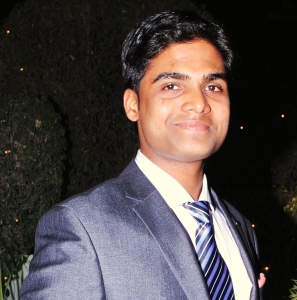Amidst the ongoing national debate about Modi being a probable Prime Minister candidate for India, British Prime Minister Cameron offered some lessons for Mr. Modi when he regretted the Jallianwala Bagh massacre. For my non-Indian friends, this was a tragedy that had happened in 1919 under British colonial rule in India when an army General had ordered killings of thousands of unarmed people who had gathered for a peaceful protest.
Does it mean that Cameron is personally guilty of what had happened in 1919? Does it lower his moral guard? Absolutely not! Without commenting upon the extent of his involvement in 2002 Godhra carnage, Mr. Modi has to date not offered such a condolence to the people of India (forget about an apology). Rather, he shied away from the same question during Karan Thapar’s interview. Manmohan Singh, after becoming Prime Minister, offered the same apology for the 1984 riots. Did that mean Singh had ordered those killings?
Narendra Modi and Moral Responsibility
In a legitimately elected public office, this vicarious responsibility comes along with occupying that post. Even if not legally liable, any such person owes a moral responsibility to accept any acts/abstentions happening under his legitimate regime. Such rules of a moral conduct cannot be written down but need to come from within; this should be the true mark of a leader.
German leaders to date continue to apologise for what had happened during the holocaust. Does this translate to a personal responsibility? It can be accepted that the people in power are also human beings, but their exalted power status has been granted on them by the people (technically if not realistically), which makes them responsible for all the incidents happening to the people who voted them into power, heedless of whether they caused those incidents or not. It’s a case of moral contract with the populace, and that should not be ignored – ever.
I wish my fellow Indians could have realised the ramifications of placing such a person in office. But the fault is just not his; the fault is ours as well. Our established institutions, which only promote nepotism and reticence, have not been able to produce or endorse any other alternative leader for this new India. It is a harsh reality that we today have a leadership deficit with no alternative, and Modi is making the best out of this desperate situation.
I must say, this leadership deficit must not be an excuse to put such a man in a place of high office. Creating new effective institutions that mentor new young leaders like all of us talking here will be a slow process and would take some time.
In the meantime, we will have to find some workable alternatives. We owe a duty to create some genuine public opinions. Modi’s projection as a probable Prime Minister candidate for India has happened due to a sustained media public opinion (nevertheless, a media propaganda hyped by business houses is another reality behind this fact). Why can’t we form a genuine public opinion to project Nitish Kumar as a potential Prime Minister candidate from NDA and A K Antony from UPA? Surely we can, but we need to get out of the closet and think beyond what the media wants us to think.
Narendra Modi Was Not Behind the Success of Gujarat
I fail to understand how Gujarat development story has got credited to Modi’s success account. Tamil Nadu, Maharashtra, Haryana, Himachal Pradesh, and very lately Bihar, have had much better economic, as well as social indicators, than Gujarat! Gujarat still lags behind all these states (ignore Bihar) with many of the social indicators like infant mortality, child malnutrition, poor-rich gap, farmer debt, female mortality, girl education, public health etc. I fail to understand how media has chosen to ignore this side of the story. Unfortunately, the Indian electorate today is highly energetic, but at the same time highly ignorant of the ground realities. The way media and people blame Manmohan Singh for the present day high inflation and economic downturn, they have over hyped the Gujarat’s success story that is infact very ordinary.
We must stop rating leaders by their face value. Modi’s USP is his presentation skills and the way he interacts with the media and people. But as I always remark: “Symbolism without Substance is useless”; we need to go beyond this. I wonder, will Modi be able to control inflation and build up investor confidence if he comes to power? Can he bring down India’s fiscal deficit? Can he control the subsidy problem? A very honest answer would be “No”. I will not call it his incapacity because it is beyond any rational human control. Today’s economics are very much market driven and globally oriented. So, Modi or Rahul Gandhi; both will be rendered helpless. Unfortunately, none of them have talked about any of these issues.
Narendra Modi cannot be the Next Prime Minister of India
It will be a betrayal of India’s age old historical traditions of tolerance, humility, and service before self if a man like Modi comes to power. The ball is still in his court because we are not going by facts of Godhra, but because he has never bowed down in respect of those who got tortured and killed. It reflects upon his rigid, extremist mentality (refusing to wear a skull cap was another reflection of this). In this leadership deficit, I would rather accept any ordinary leader than accepting such an extraordinary fundamentalist.
The frustration of a rising urban India is understandable. It is more like a desperate lamb finding ways of not getting slaughtered with Mr. Modi offering a few more days of life. But the lamb is unaware of this fact that this particular butcher takes his time to kill and enjoys his meal even without dropping a single drop of blood or regret.
Many thanks for the inputs by Shyama Kuriakose


